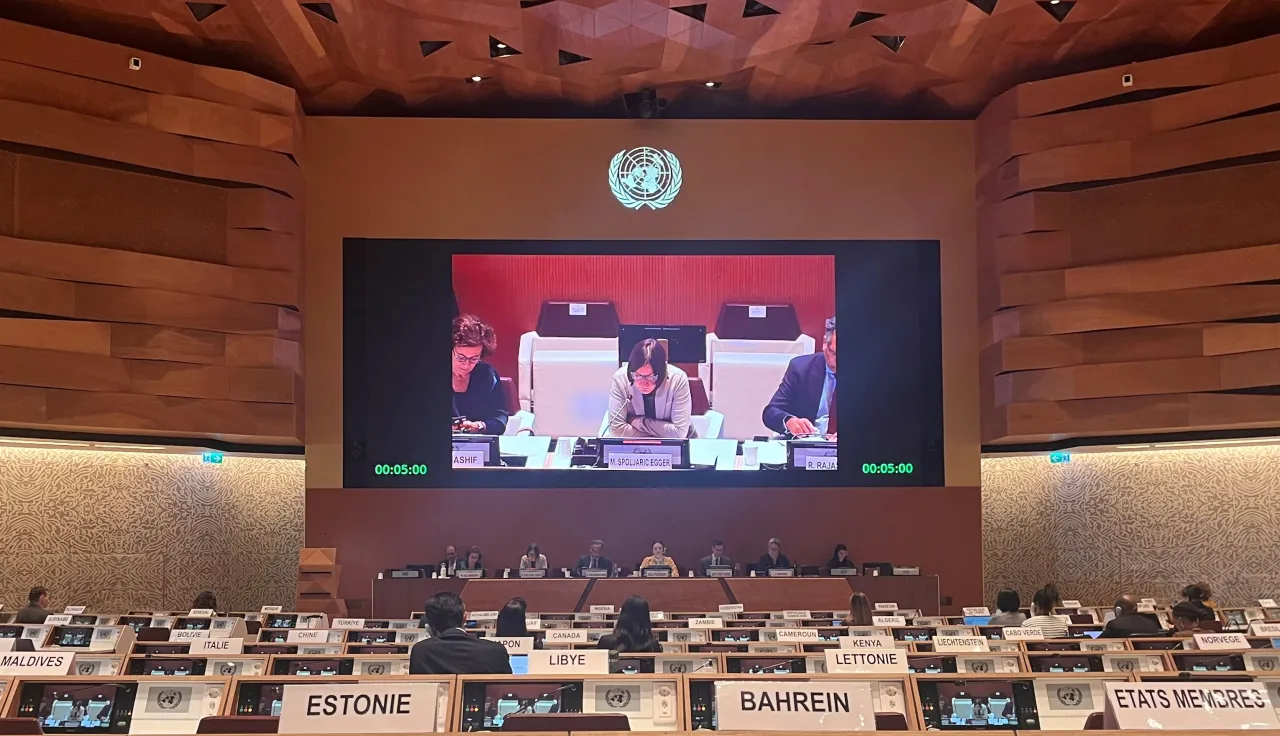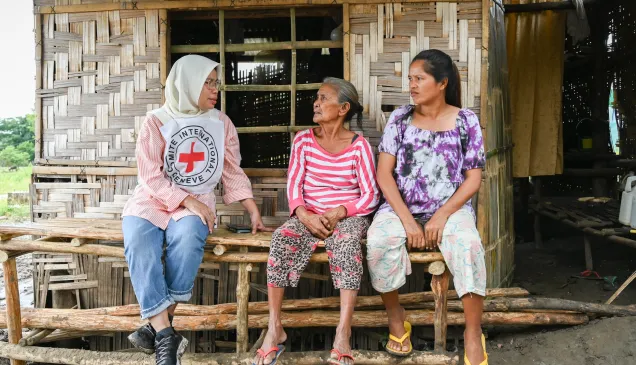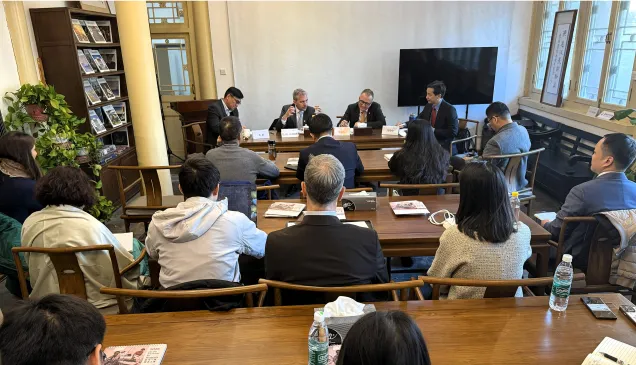Thank you, Ambassador.
Excellencies, distinguished delegates, and dear colleagues,
The reality is clear: we are living in a decade defined by war.
The military escalation between Iran and Israel risks plunging the region and beyond into an uncontrollable situation with devastating consequences for civilians on both sides. At the same time, conflicts in Gaza, Sudan, Ukraine, and beyond continue to intensify.
The ICRC today classifies around 130 armed conflicts. This is more than we recorded just a year ago, and far more than we recorded 25 years ago.
As wars multiply, respect for international humanitarian law (IHL) is in crisis, threatening the core of our existence.
The sheer scale of destruction is pushing international systems to the brink. The economic fallout from today’s conflicts extends far beyond the frontlines, undermining human development.
Unrestrained violence and so-called limitless wars plant the seeds of future atrocities. In a time of blurring alliances, upholding the rules of war is possibly the best safeguard States have at their disposal to ensure the safety of their own people.
Or why would States themselves have created these rules based on their experience of two unimaginably devastating world wars?
And yet, despite decades of consensus and progress on humanitarian treaties to minimize suffering in war, the very foundations of IHL are again under attack.
You do not have to pull the trigger any more to be complicit in potential war crimes. Every state has a stake and a responsibility in reversing a very dangerous trend of hollowing out the normative space that protects our human dignity.
To do so, four urgent actions must guide our collective efforts:
First, it is possible to wage war while respecting the rules of war.
Preventing violations of IHL is not just a legal obligation. It is a moral one. Above all, it’s a political responsibility of Governments and State leaders.
Protecting hospitals, homes, schools, and essential services is at the heart of IHL and must be prioritised in every diplomatic as well as military strategy.
Second, we must preserve the humanitarian objective of IHL.
As new technologies emerge and the nature of conflict evolves, we must remain alert and take effective measures against any expansion in our tolerance for human suffering and destruction.
The rules of war cannot be interpreted with elasticity depending on which side you are on or depending on the nature of the conflict.
Third, we must recognize that respect for IHL is essential for future peace.
There will be no victory in the wars that we see today. Every armed conflict must be fought with a plan to eventually return to peace. Respect for IHL can support mediation and reconciliation.
Peace can start in a prison cell. Allowing the ICRC to visit detainees on all sides prevents disappearances and maintains vital family connections that preserve hope and dignity.
Finally, we must guarantee that humanitarian aid reaches those who need it. Aid is being manipulated and militarised in abhorrent ways, and aid workers are increasingly targeted and killed while carrying out their lifesaving work.
This is intolerable.
But there is hope.
Because last September, the ICRC, together with Brazil, China, France, Jordan, Kazakhstan, and South Africa launched a global initiative to revive political commitment for IHL.
Since then, more than 75 states have joined this initiative, a powerful testament to the enduring relevance of IHL and a clear signal that the world is not prepared to surrender its humanity in the face of war.
Twenty-four of those states are working with our legal teams to lead seven workstreams that will develop practical recommendations to improve respect for IHL.
These include finding good practices to prevent violations, nurture national IHL committees, and explore how IHL can remove barriers to peace. They are also working to build shared understanding around protecting civilian infrastructure, particularly hospitals, as well as information and communication technologies and naval warfare.
In recent weeks, more than 130 states participated in consultations around these topics. The 24 state co-chairs are now working closely with our legal team to summarize the recommendations.
They will propose a plan to further explore some of the ideas put forward by states and other stakeholders at events in New York and Geneva in September with the aim of leading us to practical, and most importantly, sovereign steps, to help improve respect for the rules of war by the end of 2026.
I want to thank the six founding states of the initiative, the workstream co-chairs, and others who are working with us to drive this forward. I am also encouraged by the Call to Action developed ahead of this meeting, which strongly emphasizes the importance of respecting and promoting IHL.
Everyone in this room and beyond has a critical role to play.
I have said it before and am saying it again with even more urgency: Humanity is failing right now under our collective watch.
We need political leadership to stem this very dangerous tide.
Thank you.




